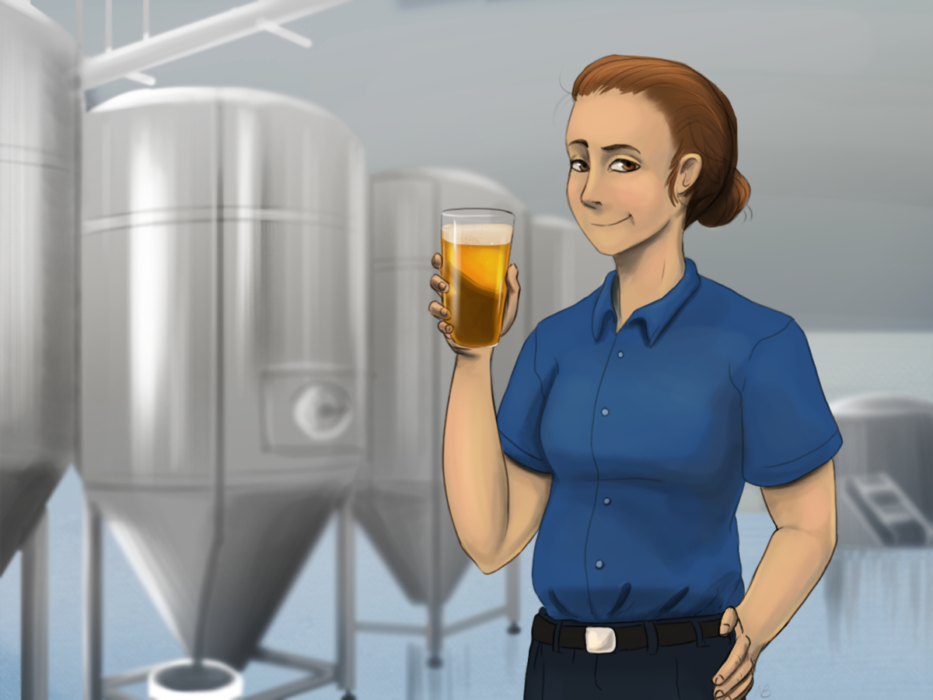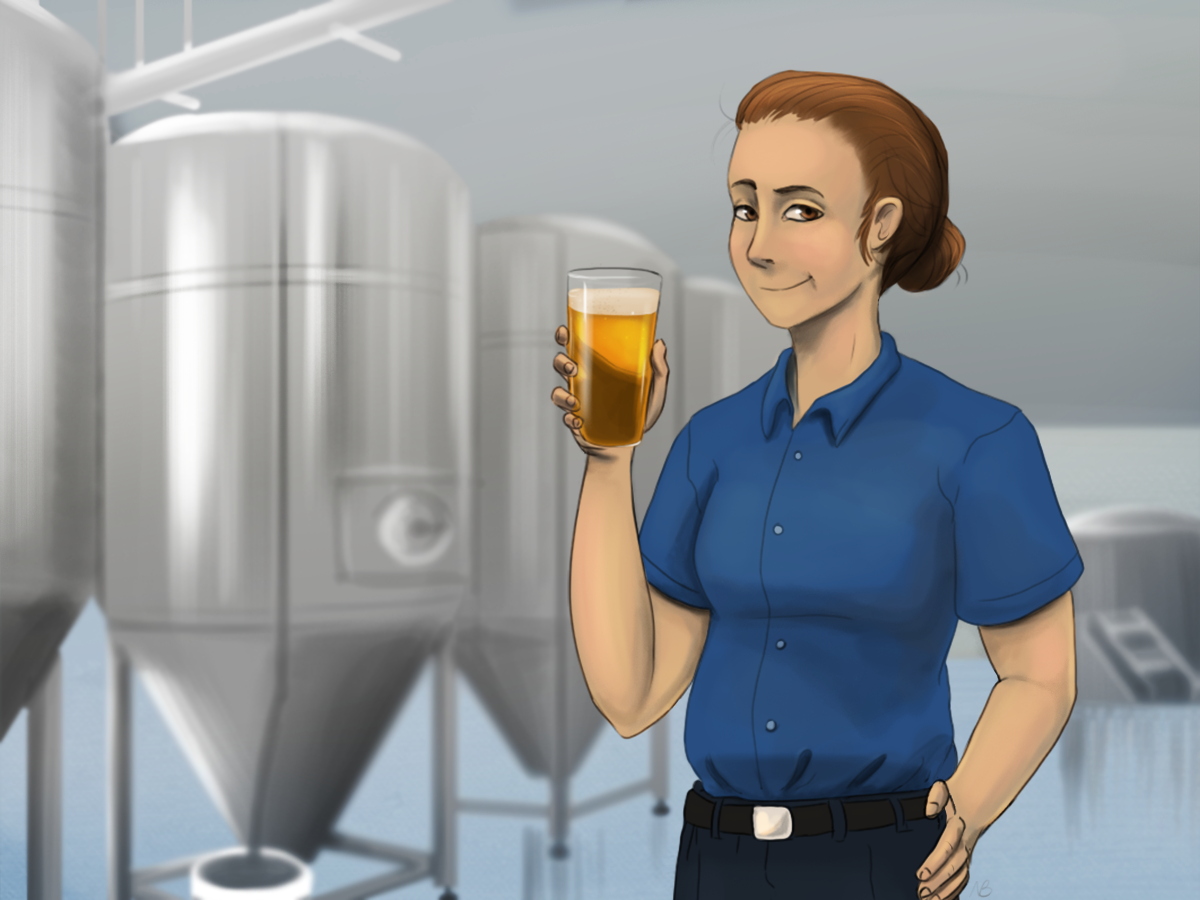
In 2014, Robyn Schumacher, a certified cicerone and co-founder of Seattle’s Stoup Brewing, was handing a male patron a beer sample when he moved past her, asking questions about the beverage to a man nearby. The patron incorrectly assumed the man he saw, not Schumacher, was Stoup’s brewer.
“If you’re at a beer event where you don’t know a lot of people, it can feel isolating to not look like everyone else,” Schumacher said. On May 13, however, Schumacher poured her beer at an event where many people did look like her: Women in Beer. The event celebrating women in the brewing business has been a part of the annual Seattle Beer Week lineup since 2012.
Craft brewing is big business in the West. Anchor Brewing, considered the first modern American craft brewery, started in California in 1965, and the industry has grown steadily since. Seven of the 10 states with the most breweries per capita are in the West, according to the Brewers Association. But women in the industry still face hurdles getting a foot in the door, or, as Schumacher experienced, getting taken seriously once they do.
A Stanford University study published in January examined consumer responses to women-produced craft beer versus cupcakes produced by men. Researchers found that, while the cupcakes produced by men sustained consumer expectations for quality, craft beer made by women was met with lower customer expectations for taste and quality. Potential customers said they weren’t willing to pay as much for beer if they believed it was brewed by a woman.
Those who have attempted to break down these barriers have found the path isn’t easy. Ting Su, co-founder of Eagle Rock Brewing in Los Angeles, hosted monthly brewing events for women. But in late 2017, a men’s-rights activist and supporter of the National Coalition for Men filed a discrimination claim. Rather than risk the brewery over legal fees, Su settled out of court.
“The mental, emotional strain that this put on myself and my team and my business partners … I think it was unjust for what we were trying to do, which was promote diversity,” Su said.
As in many other industries in the #MeToo era, sexual misconduct has reared its ugly head in the craft beer world. Last year, a veteran brewer at Melvin Brewing, the uber-successful brewery headquartered near Jackson, Wyoming, was accused of groping a female employee at an establishment near their Bellingham, Washington, brewpub. The incident resulted in a new sexual harassment policy at the company and an apology from the owner, but many blamed the “bro” culture the brewery was known for, including text on the company’s website that made light of sexual assault. (“Show us on the doll where Melvin Brewing touched you.”) Several businesses around western Washington called for a boycott of Melvin’s beer.
Events like Women in Beer, hosted by Pike Brewing Company, remain important venues for the women behind respected craft beer labels.
“You don’t have to have a neck beard to brew good beer,” Holly Ihrig, co-founder of Sumerian Brewing, said. She was referring to the association of masculine stereotypes with the physical and mechanical work in beer that affects how both men and women perceive the beverage.
“It comes down to straightforward numbers,” said Stoup Brewing’s other female co-founder, Lara Zahaba. There’s a significant gap, she said, between the number of men and women brewers in her applicant pool. A 2014 study out of Auburn University showed only 4 percent of breweries in the U.S. had a female head brewer; many in the industry think that number has increased in the years since, but it’s far from parity.
It wasn’t always this way. Women, after all, were the original brewers. “The church introduced beer to the Western world,” said Pike co-founder Rose Ann Finkel. “But the nuns were the ones doing the brewing; they just didn’t get any of the credit!” Historically, the process of making beer was performed in kitchens and domestic spaces, areas relegated to women’s labor. With the advancement of machinery came commercialization; only then did men take over.
Marena Domingo-Young, creator of an upcoming documentary, Girl Beer, about women in the craft beer industry, wanted to examine why so many sexist stereotypes existed in the beer world. “You have just as much of a right to be here as anyone else,” she said. Domingo-Young first encountered the term “girl beer,” referring to beers with perceived feminine traits, such as a pinkish hue, fruit profile, or even those served in smaller glasses, while working in brewpubs. And it’s not just men gendering beer that bothers her. “It would break my heart to hear a woman call it ‘a girl beer,’” she said.
Challenging the assumptions of who beer is for and who drinks it is important to Teri Fahrendorf, who clocked nineteen years as brewmaster, primarily at Steelhead Brewing Company in Oregon. She referred to Budweiser advertisements depicting men as the beer drinkers and women as servers: “How does that give women the courage to drink beer at a bar?”
More than a decade ago, Fahrendorf, who is now a manager at Great Western Malting in Vancouver, Washington, took a cross-country tour to more than 70 breweries. She was struck by how many women in her industry felt alone, and founded the Pink Boots Society in 2008. The nonprofit aims to get more women in the industry, in part by offering scholarships for beer-related education. As opportunities to study the science and business sides of brewing have increased, Fahrendorf sees more chances for women to increase their representation in the industry. Programs related to breweries and brewing now exist at Oregon State University; the University of California, Davis; Central Washington University; and more.
Women in Beer itself is proof that things are changing. “It’s amazing how many young women are now in the industry,” Mari Kemper, co-founder of Chuckanut Brewery in Bellingham and one of Women in Beer’s original participants, said. “I rarely saw women brewers, or even brewery owners or sales people [before].”
Since the event’s inception in 2012, not only are more women vendors participating, but a dedicated throng of patron support has emerged. This year, supporters packed two levels of the expansive brewpub in Seattle’s historic Pike Place Market. From young women posing for selfies with their beers to seasoned professionals having a laugh, the annual event has become more than just a tasting: It’s a chance for women to show they have a place in the male-dominated industry.

